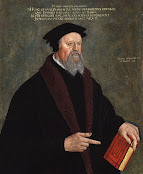So, the section we looked at on ‘rest’ has focused on the believers and how they ought to trust Christ. The thing about Hebrews is that his letter is a magnificent letter that keeps a flow without changing subjects all the time. Apollos has proved that Jesus is God; he has proven that Jesus is greater than the angels; He has proven that Jesus is greater than Moses. In this magnificent and beautiful letter, he shows the believers that God has prepared a place for them. This place is situated in God’s ‘rest’. He sections we dealt with last time is about how the believer is supposed to live. He is to live by faith.
We need to be careful now at chapter 4 verses 8 -16. Apollos very cleverly is closing the paraenetic trusting material verses 8-13 in relation to the Sabbath rest of God. He will then begin the introduction of Jesus our great Hight priest section. Although we need to be aware that Apollos has already mentioned Jesus as High Priest in chapter 3 verse 1. It is taken as a given that these believers saw Jesus as High priest, but they are in the long run going to be taught the content of what this actually means. As far as I can see Apollos (if it is him) is one of the greatest theological writers in the New Testament along with Paul and St John the Apostle. No writer in the New Testament has been able to stick to his material and follow an argument to the end. This letter is amazing. If you are a student at university; Have you ever thought about how to change from one topic to another topic in one seamless connection? In these few verses we are going to see this happen.
So let us read:
8 For if Joshua had given them rest, He would not have spoken of another day after that. 9 So there remains a Sabbath rest for the people of God. 10 For the one who has entered His rest has himself also rested from his works, as God did from His. 11 Therefore let us be diligent to enter that rest, so that no one will fall, through following the same example of disobedience. 12 For the word of God is living and active and sharper than any two-edged sword and piercing as far as the division of soul and spirit, of both joints and marrow, and able to judge the thoughts and intentions of the heart. 13 And there is no creature hidden from His sight, but all things are open and laid bare to the eyes of Him with whom we have to do.
14 Therefore, since we have a great high priest who has passed through the heavens, Jesus the Son of God, let us hold fast our confession. 15 For we do not have a high priest who cannot sympathize with our weaknesses, but One who has been tempted in all things as we are, yet without sin. 16 Therefore let us draw near with confidence to the throne of grace, so that we may receive mercy and find grace to help in time of need. Hebrews 4:8-16
With Joshua and God’s rest we see the completion of a section. The Israelites arrived in the promised land. This is a great rest is it not? No! The history of the Israelites is a warning to all of us, whether we are Jewish or Gentile. The promised land might of started as a paradise but we know the history of the Judges, Kings and Chronicles. God’s people kept turning their back on God and the covenant. They were turning their back on God because of unbelief. Verse 11 is critical in understanding where Israel went wrong:
” Therefore, let us be diligent to enter that rest, so that no one will fall, through following the same example of disobedience.”
In our faith we need to be diligent and trust God. We need to keep Christ our Lord in view every day living according to his and the apostolic teachings in Scripture.
Do we?
Apollos gives us an inkling into the nature of God. Don’t forget though that Christ mediates for us verses 12 and 13 is a good reminder:
For the word of God is living and active and sharper than any two-edged sword and piercing as far as the division of soul and spirit, of both joints and marrow, and able to judge the thoughts and intentions of the heart. And there is no creature hidden from His sight, but all things are open and laid bare to the eyes of Him with whom we have to do.
We need to remember that a characteristic of God is that he is holy, and he sees everything. It is no accident that all over the world one of the symbols of the judiciary is a sword.
The form of verses 8 through to thirteen we see a change of subject. It changes from us as subject to God and Christ as subject.
Having looked at the evidence I still don’t completely understand what the Writer is trying to prove. But one thing is certain when Joshua and David failed to give Israel rest, Jesus as the Messiah did not fail.
In verse 14 Apollos sets the scene and reminds his congregation of some facts. Below in the first list are the heavenly, divine characteristics of our Lord and we are called on holding on to this confession.
- Jesus is the Great High Priest.
- Jesus entered heaven.
- Jesus is the Son of God
- We are to hold to our confession.
In verse 15 we have the earthly temporal characteristics of our Lord. That Jesus really understands the problems that we are facing:
- We have a High Priest who sympathizes with our weaknesses
- Who has been tempted in all things like other believers
- Jesus has no sin.
Here we see Jesus as fully divine and fully human. Jesus is our Lord, and he loves us and cares for us. In the natural what is a priest anyway. An ordinary priest us supposed to mediate on our behalf before God. Jesus is no ordinary priest. He is the Great High priest; the genuine High priest from heaven who pleads on our behalf. This is why we can draw with confidence before God as Apollos says:
“Therefore, let us draw near with confidence to the throne of grace, so that we may receive mercy and find grace to help in time of need.” Hebrews 4:16” All quotations are from the NASB using Olive Tree software.
Reflection
[Provisional evaluation of chapters 3/7 to 4/16]
Having looked at this text very carefully there are two tensions that run throughout this text.
BELIEF UNBELIEF
Resting/obeying God. or Testing/tempting God.
The Israelites never found the real rest in Israel because they didn’t obey God. The whole history shows this. The encouraging thing is that we are called to be diligent and walk by faith. We are not to look back. Jesus is the real Great High Priest. Jesus as God has entered heaven but as a human being, Jesus understands the turmoil we go through on a day-to-day basis. Apollos then encourages us to draw close to the throne of grace. In Jesus we find mercy and not the sword. Verses 14 to 16 gives us a glimpse into what he is going to explain to us next. Even when we stop here; I feel encouraged. These believers suffered various forms of persecution. Apollos gave them advice to walk on through the shadow of the valley of death and to come out on the other side victorious. Let us keep firm and keep trusting our Lord Jesus through thick and thin. Our relationship with God is the real thing. It does not matter what material things we own. God is bigger than that, in fact these believers had their worldly wealth confiscated. They had their lively hoods taken from them. They had worldly security taken from them. These believers were going through serious troubles, and it would nor surprise me if some of them got martyred. If you are a believer, perhaps you are going through a hard time at the moment. Jesus understands you and he cares for you. Apollos is showing you the way. Don’t forget to ask God to give you help in these times. Keep on trusting, keep on obeying, keep reading your Bible and stay on the narrow road. Don’t forget that if you are trusting in Jesus, you are part of the universal church of believers past, present and future.



